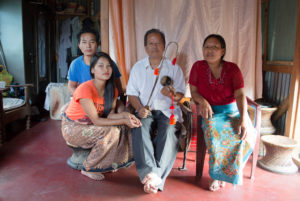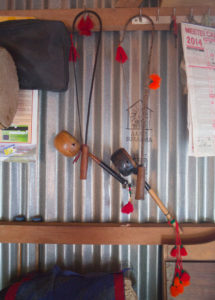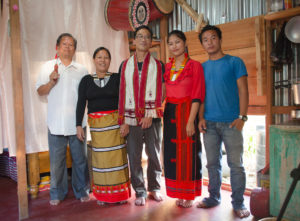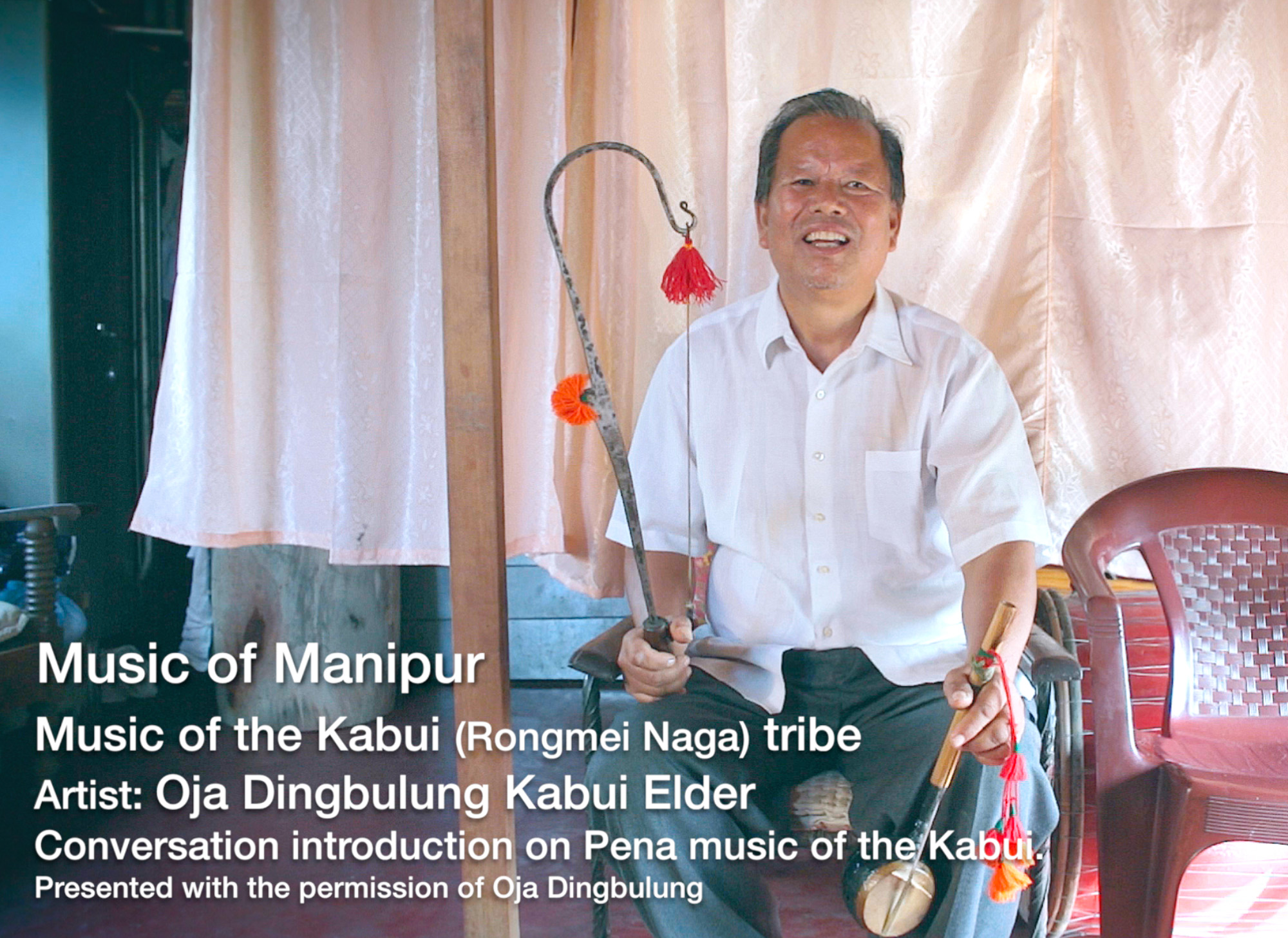One of the elders of the Kabui Naga community is Oja Dingbulung. He lives with his family at Mahabali Kabui Khul, a tribal neighborhood near the palace grounds in Imphal. Oja has great knowledge of many rare and disappearing songs of his tribe the Kabui (Rongmei Naga). Most profoundly, he is probably the last player of the Kabui Pena, a version of the single string musical instrument most associated with the Meitei. From his memory he can play a whole repertoire of songs of ancient origin, which no one else remembers let alone can perform. He is also a ritual specialist of the old Kabui Naga faith and can artfully perform tribal life rituals which over the past decades have become virtually extinct.
I was able to meet Oja Dingbulung through my friends at Laihui, Mahesh H. and Mangansana M. Over a few visits with Oja we decided to do some recordings at his home. We were most interested in recording his Pena songs as they are truly endangered music. Here Oja explains that there are three types of Kabui Pena songs known as Reh Lu. and he sings on in each style, Dhung Lu, Phai Lu, Lam Luan Lu. Oja also plays a song on Pung (drum) which is a popular dance song for Gaan Ngai (Kaubi winter festival) know as Lam Lu (Dance songs). Oja also sings a song with their Kabui dao (sword) which could be sung with pung or acapella, which is also a Lam Lu for Gaan Ngai. Then Oja offers to sing a very rare song called Katu Lu (insect song). This special song is now rarely heard or sung. In the past in the village it was sung before sowing of seeds. It is dedicated to the Rice Goddess asking for protection from insects and pests and for an abundant harvest. It is to be sung in the fields while working and planting. As said before this song is now rarely sung today.

The life story of Oja Dingbulung is incredible and refects a journey similar to many Kabui who have settled from the hills to live in Imphal city. The Dingbulung family is originally from Tamenglong district in the northwest hills bordering Assam. His tribal land and home were destroyed in the cross re of the violent Kabui and Kuki tribal conficts of the 1990s. He moved his family to another area hoping to escape the ethnic violence and after a few years his second home was also burned by insurgency groups. It was at this time that he and his wife decided to move to Imphal with their 10 children, where they have now lived for over a decade. His neighborhood the Mahabali Kabui Khul supports about 100 Kabui extended families. Many Kabui in Imphal have similar stories of violent displacement and have had to leave their ancestral homes in order to escape ethnic confict.
Oja Dingbulung is also a drum and musical instrument maker. During the Gaan Ngai, winter festival of the Kabui he is a lead organizer of rituals and music programs.
——————————-
Oja Sings Katu Lu (insect song). This special song is now rarely heard or sung. In the past in the village it was sung before sowing of seeds. Dedicated to the Rice Goddess it asks for protection from insects and pests and for an abundant harvest. It is to be sung in the fields while working and planting. As said before this song is now rarely sung today.


——————————————
Oja Dingbulung sings a popular Gaan Ngai (Winter Festival) Lam Lu (Dance Song) in the Kabui style.
Before demonstrating, Oja first gives a short talk about Kabui Pena and its three styles.
Oja plays the Kabui Pena. and demonstrates the three song styles starting with this song. Phai Lu.
Oja Dingbulung sing a Laum-Luan one of the three types of Kabui Pena songs.
Oja Dingbulung sing the third type of Kabui pena song, Dhung Lu.
————————
